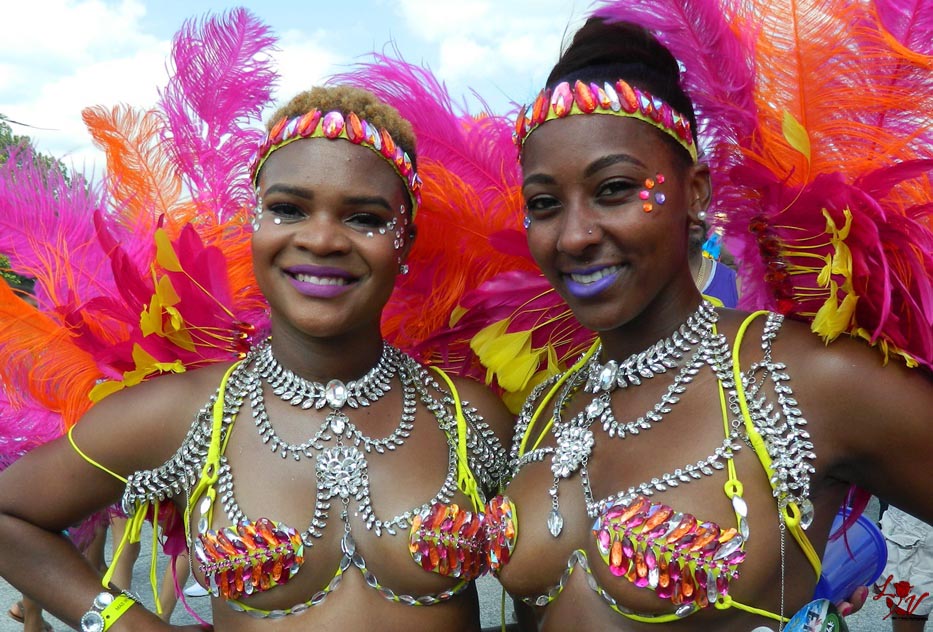
Carnival: Love, Roots & Ancestry
Carnival revelers throughout the Caribbean religiously await the yearly return of Carnival every year with heightened hopes more than the last. Carnival celebration goes down in a host of islands and cities such as Haiti, ![]() Jamaica, Barbados, Miami and Toronto, with Trinidad and Tobago being the largest celebration.
Jamaica, Barbados, Miami and Toronto, with Trinidad and Tobago being the largest celebration.
However, Carnival in the West Indies in recent times are dying mainly because of its commercialization. I see rappers coming to carnival to shoot their video in the midst of it all like wow....using carnival as a prop.
Another major breakdown of Carnival culture is that everything is so sexualized. Thousands of years ago woman and men walked the Earth naked and it was who they were and it was understood. Today if people as much as see a cheek showing that woman is going to be belittled. Many don't know that Carnival is in direct relations to african traditional practices and our African ancestors in every way you can think of. Here are four amazing facts about the history of Carnival. ![]()
1. Carnival is indeed of african roots. Our ancestors created carnival through a major celebration that they would practice after harvesting. Some of the Africans that were kidnapped and brought to the Caribbean continued this same celebration after sugar cane harvesting was over.
2. Carnival attire is a very crucial part of the celebration. Almost all the costumes have feathers constructed into them. Feathers have been used by our ancestors and throughout African culture for thousands of years. They represent our ability to travel metaphysically, overcome illnesses and rise above trial and tribulations.![]()
3. The various characters such as stilt figures and Jankunu are depictions of our ancestors and their images are still in use to this day. I personally love the Jonkunu. I always look forward to seeing them. However in recent times it is so commercialized to the point where it's now just a photo op, instead of people being enlightened and appreciative of what they represent.
4. Our dances and the many styles of parading, comes from our ancestors. If you notice, we march and parade about in circles. That's most of what we do. This is in fact a very ancient tradition where our ancestors would parade in circles with their costumes on throughout their villages to bring forth all things positive, great fortune and healings. ![]() Music is also a big part of carnival and African traditional musical instruments are key in producing the amazing carnival sounds, rhythms and beats that we all love.
Music is also a big part of carnival and African traditional musical instruments are key in producing the amazing carnival sounds, rhythms and beats that we all love.
Whether for the history and culture, or the music and dance, or even the eccentric costumes and delectable delights, the Caribbean carnival a place for all walks of life to enjoy themselves. All in all carnival is yet another means by which we can celebrate our ancestral past and we will continue to do so for many generations to come, in love.




